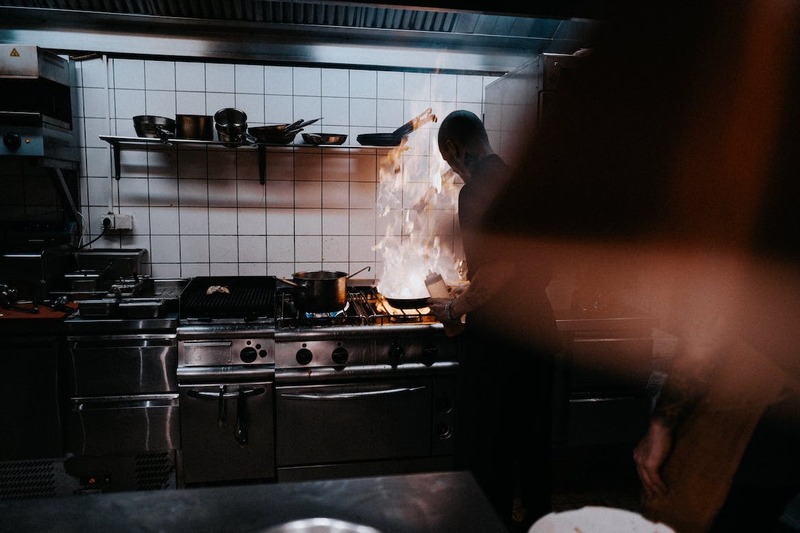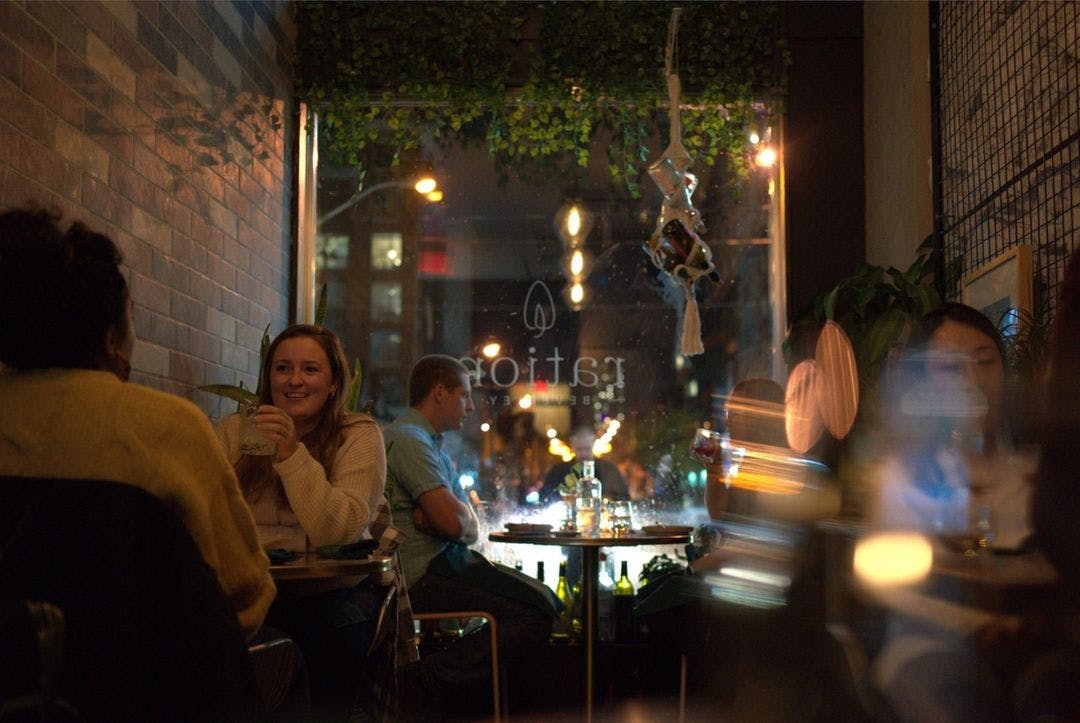
Ontario will begin to ease restrictions once again at the end of the month, including the reopening of restaurants at limited capacities. But, what good does that do for folks in the foodservice industry? Some are saying not much.
On Wednesday, Premier Doug Ford hinted at the province making moves to end the lockdown, which was enacted on Jan. 5 in response to surging Covid cases as a result of the omicron variant. His decision to halt indoor dining at restaurants on short notice was met with greater dismay this time around. According to Restaurants Canada, restaurants in Ontario reported that they lose about $10,000 every time they are suddenly told to shut down their dining services. But, this most recent lockdown has proved to be far more difficult for those in foodservice and hospitality, especially considering most places had closed up briefly to rest after a busy holiday season.
“We’ve lost almost $25,000 from being closed for almost a month,” says Wesley Barber, co-founder of Ration Food Lab. “It’s great news and we’re happy to be back, but I just think this last lockdown was extremely hard on restaurants, more so than every other lockdown before.”
The difficulties lie in a multitude of factors––staffing shortages that have been felt across the industry, delays in the supply chain and wage increases all play a part in the struggles that restaurants face when they go in and out of lockdowns. These challenges are enough to put a business out on its own, but lack of provincial guidance and support is where some business owners are saying is pushing them over the edge.
“I called Toronto Public Health yesterday because of a health issue amongst one of my staff and they were unable to provide me any guidance,” says Jimson Bienenstock, founder of HotBlack Coffee in Toronto. “They are able to give me anecdotal stuff, but they would just fall back on the provincial legislation.”
HotBlack Coffee, which was founded in 2015, focuses on facilitating social interaction by way of their coffee shop. It has long been known that their space does not offer wifi to encourage their guests to connect in a non-digital way, and Bienenstock says his staff are the driving factor in providing that one-of-a-kind service HotBlack has replicated throughout its three Toronto locations. With staffing shortages continuing to be an issue across the industry, along with all other Covid-drawn impacts, they’re not just losing profits and business––their image as a connective, community-orientated hub is taking a hit too.
“Our positioning is that we’re a vehicle for human interaction, which I feel, really, is what the hospitality business is all about,” says Bienestock. “We’re a vehicle for interaction, not just for people amongst themselves, but also between staff and the customers. And that [was] really ripped out from under us.”
The province’s dearth of guidance throughout the lockdown and the pandemic at large––as well as the leading up to the reopening of indoor dining later this month––has forced business owners to navigate the impact of Covid blindly, and has been a rallying topic by advocates and organisations demanding more from the government.
“Restaurants can’t simply open their doors at a moment’s notice,” said Restaurants Canada President and CEO Todd Barclay in a statement on Wednesday. Barclay and Restaurants Canada are urging the provincial government to provide immediate guidance for when restaurants are to reopen for indoor dining at the end of the month.
The statement also calls on the provincial government to defer HST payments to preserve cashflow, re-impose Ontario’s moratorium on commercial tenant evictions––which ended on Dec. 31, 2021––as well as increase funding available through the Ontario Covid-19 Small Business Relief Grant program, while also expanding its eligibility requirements to allow more vendors to apply.
“Right now, the spreadsheet for the subsidies for the latest version, which are incredibly complex to try to fill in, it almost seems designed to not allow people to apply for subsidies,” says Bienenstock.
Barber’s grievances with the lack of support from the government this time around are alike. Ration Food Labs was founded during the pandemic, and their entire business has pivoted several times to work throughout Covid. While they welcomed all the support and hand-outs from the government over the first couple of lockdowns, Barber says this past lockdown has been a headache.
“It just really, really feels like the government doesn’t care about the restaurant industry,” says Barber. “We just don’t see the same support we saw in the first three lockdowns.”

He notes that there hasn’t been any sort of support for his staff either, and two of his front-of-house team members have moved on to new industries entirely, meaning he’ll have to go on the hunt again for willing workers in an employment pool that’s already sucked dry. Not to mention, the cost of training staff, especially as frequently as restaurants have to, adds up quickly, and coupled with the fact that they are continuing to be laid off lockdown after lockdown, the task is even more difficult.
Government subsidies that are in place for hard-hit businesses are meant to provide some financial relief for owners, but Bienenstock says it’s still not enough. In an industry that has always operated on tight margins, even at full capacity, businesses continue to lose out on income, as the cost of running their business has not gone down, alongside a weak relief grant program by the province.
“To be reduced to 50 per cent, none of our fixed costs have gone down,” says Bienenstock. “The insurance has gone up, cost of sales are going up, we had a wage increase, again on the first of January, right in the middle of not only were we at 50 per cent [capacity], we were in a full lockdown situation. And we have no idea, at the moment, if we’re going to be getting any subsidies on that labour.”
Bienenstock says that he wants more consistency across the board from the provincial government moving forward, including subsidies, policy and legislation regarding the foodservice industry. He wants to understand why other provinces, like British Columbia and Alberta, can operate their restaurants while Ontario can't. For Barber, he wants the government to understand that their industry is important, and cannot survive with the constant changes in their operations due to lockdowns and restrictions.
“I think the important takeaway is that restaurants are safe. We need to stop being the guys in limbo," says Barber.










